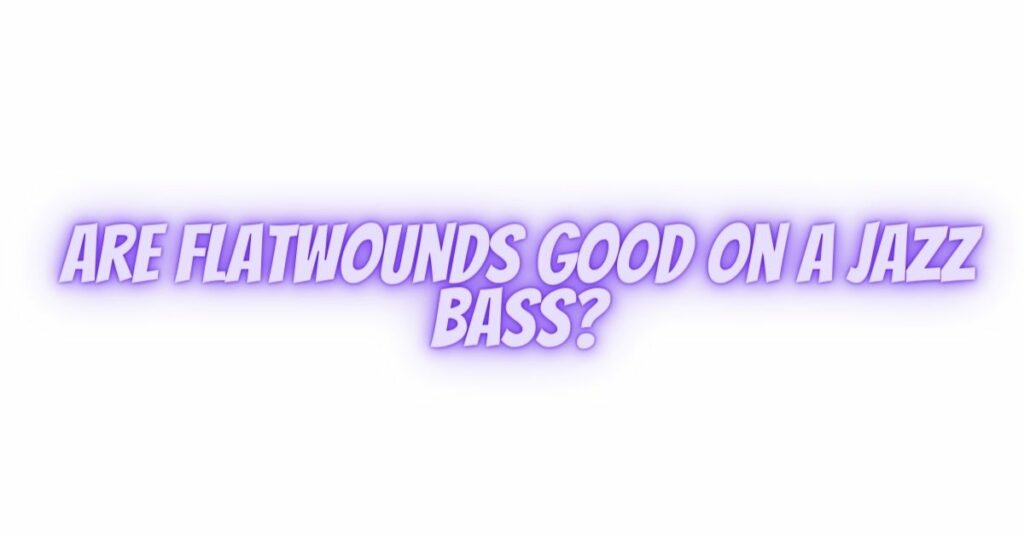The Jazz Bass, known for its versatility and iconic design, has been a favorite among bassists for decades, particularly in the world of jazz music. When it comes to selecting the right strings for a Jazz Bass, the debate often centers around the choice between flatwound and roundwound strings. In this article, we’ll delve into whether flatwound bass strings are a suitable option for a Jazz Bass and the unique qualities they bring to the jazz genre.
The Jazz Bass and Its Versatility
The Jazz Bass, introduced by Fender in the 1960s, has earned its reputation as a versatile instrument, capable of delivering a wide range of tones. While it’s a popular choice in jazz, it’s equally at home in various other genres, including rock, funk, and blues. The decision to use flatwound or roundwound strings can significantly influence the bass’s tonal characteristics and suitability for jazz.
Flatwound Bass Strings: A Classic Choice
Flatwound bass strings are often considered a classic choice for jazz bassists due to their distinctive tonal qualities and playability. These strings are crafted by winding a flat ribbon-like wire around the core, resulting in a smooth and flat surface. Here’s why flatwound strings are a good fit for a Jazz Bass:
- Warmth and Clarity: Flatwound strings are celebrated for their warm and clear tone. In the context of jazz, this warmth can provide the foundation for a mellow and well-defined sound that complements the genre’s sensibilities.
- Reduced String Noise: The smooth surface of flatwound strings minimizes finger noise and string squeaks. This is particularly beneficial for jazz, where clean and precise playing is essential.
- Vintage Character: Flatwound strings are often associated with vintage jazz bass tones from the mid-20th century. Using flatwounds can evoke a classic and timeless jazz sound reminiscent of iconic recordings.
- Comfortable Playability: The smooth surface of flatwound strings is easy on the fingers, allowing for comfortable and extended playing sessions—ideal for jazz bassists who frequently engage in improvisation and extended performances.
Is It a Good Fit for a Jazz Bass?
Flatwound strings are indeed a good fit for a Jazz Bass, especially if you’re seeking the quintessential jazz sound characterized by warmth, clarity, and vintage charm. However, it’s important to note that the choice of strings should align with your specific jazz style and personal preferences. Here are some considerations:
- Traditional Jazz: If you’re playing traditional or straight-ahead jazz, flatwound strings are an excellent choice. Their warm and mellow character complements the acoustic and upright bass-like qualities often associated with this style.
- Fusion or Contemporary Jazz: In fusion or modern jazz genres, where a more versatile and dynamic sound may be desired, you might explore hybrid sets that combine flatwound and roundwound strings or opt for roundwounds for added brightness and punch.
- Personal Preference: Ultimately, the decision comes down to your personal tonal preferences and the specific sound you want to achieve with your Jazz Bass in the context of jazz music.
Conclusion
Flatwound bass strings are a well-regarded choice for a Jazz Bass, offering warmth, clarity, and a vintage character that aligns with the genre’s traditional sound. Many jazz bassists appreciate the smooth playability and reduced string noise that flatwound strings provide, making them a suitable option for both classic and contemporary jazz styles. However, the choice of strings should always reflect your unique playing style and the sonic palette you wish to explore within the realm of jazz music.


